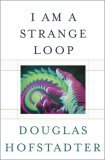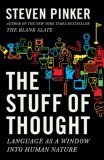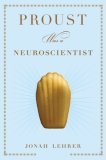[Continuing an occasional ‘mind alphabet’ series. I recently came across several things dealing with virtual worlds, not exactly games, but related…]
- Mitch Kapor spoke at Berkeley’s I School about Second Life (podcast). Kapor believes that virtual worlds such as Second Life will become the next big “disruptive innovation” on a par with the personal computer and the Internet (topics of his two earlier talks in the series). Currently virtual worlds are in the early adopter stage, according to Kapor, comparable to the early “DOS era” of PCs.
Virtual worlds have exploded out of online game culture and now capture the attention of millions of ordinary people: husbands, wives, fathers, mothers, workers, retirees. Devoting dozens of hours each week to massively multiplayer virtual reality environments (like World of Warcraft and Second Life), these millions are the start of an exodus into the refuge of fantasy, where they experience life under a new social, political, and economic order built around fun. Given the choice between a fantasy world and the real world, how many of us would choose reality? Exodus to the Virtual World explains the growing migration into virtual reality, and how it will change the way we live–both in fantasy worlds and in the real one.
Some books related to games, further exploring the philosophical, psychological or cultural implications:
Ever get the feeling that life’s a game with changing rules and no clear sides, one you are compelled to play yet cannot win? Welcome to gamespace. Gamespace is where and how we live today. It is everywhere and nowhere: the main chance, the best shot, the big leagues, the only game in town. In a world thus configured, McKenzie Wark contends, digital computer games are the emergent cultural form of the times. Where others argue obsessively over violence in games, Wark approaches them as a utopian version of the world in which we actually live. Playing against the machine on a game console, we enjoy the only truly level playing field–where we get ahead on our strengths or not at all.
Gamer Theory uncovers the significance of games in the gap between the near-perfection of actual games and the highly imperfect gamespace of everyday life in the rat race of free-market society. The book depicts a world becoming an inescapable series of less and less perfect games. This world gives rise to a new persona. In place of the subject or citizen stands the gamer. As all previous such personae had their breviaries and manuals, Gamer Theory seeks to offer guidance for thinking within this new character. Neither a strategy guide nor a cheat sheet for improving one’s score or skills, the book is instead a primer in thinking about a world made over as a gamespace, recast as an imperfect copy of the game.
- Everything Bad is Good for You
 by Steven Berlin Johnson: “In this provocative, intelligent, and convincing endorsement of today’s mass entertainment, national bestselling author Steven Johnson argues that the pop culture we soak in every day-from “The Lord of the Rings” to “Grand Theft Auto” to “The Simpsons”-has been growing more and more sophisticated and, far from rotting our brains, is actually posing new cognitive challenges that are making our minds measurably sharper.”
by Steven Berlin Johnson: “In this provocative, intelligent, and convincing endorsement of today’s mass entertainment, national bestselling author Steven Johnson argues that the pop culture we soak in every day-from “The Lord of the Rings” to “Grand Theft Auto” to “The Simpsons”-has been growing more and more sophisticated and, far from rotting our brains, is actually posing new cognitive challenges that are making our minds measurably sharper.”
In the mid twentieth century the philosopher Ludwig Wittgenstein famously asserted that games are indefinable; there are no common threads that link them all. “Nonsense,” says the sensible Bernard Suits: “playing a game is a voluntary attempt to overcome unnecessary obstacles.” The short book Suits wrote demonstrating precisely that is as playful as it is insightful, as stimulating as it is delightful. Suits not only argues that games can be meaningfully defined; he also suggests that playing games is a central part of the ideal of human existence, so games belong at the heart of any vision of Utopia.
There are at least two kinds of games. One could be called finite, the other infinite.
A finite game is played for the purpose of winning, an infinite game for the purpose of continuing the play.








